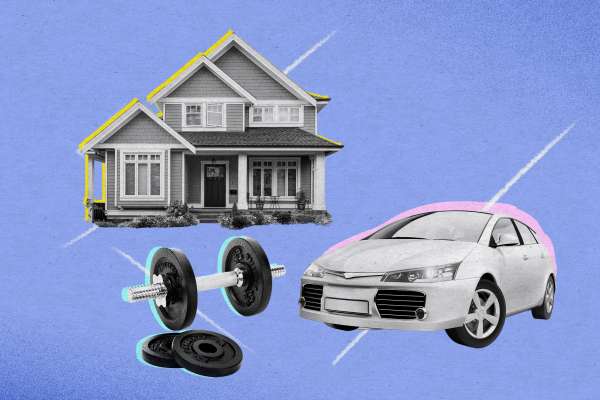Cars, Refrigerators and Other Purchases Americans Are Putting off Because of Inflation

With inflation, supply chain issues and the war in Ukraine, many Americans are deciding that buying the new car, flashy treadmill or big vacation they’ve had their eye on can wait.
People are adjusting their shopping habits as they contend with price increases affecting everything from grocery store trips to home heating bills. Prices are rising thanks in part to ongoing supply chain issues, which are also making some goods harder to find amid delays in global ports and shipping channels. Meanwhile, the conflict in Ukraine is roiling global markets, sowing the seeds of economic uncertainty and sending gas prices soaring.
All those factors are stretching household budgets — and as a result, consumers are opting out of larger, non-essential purchases in the hopes that prices will eventually come down. Here are the most commonly delayed purchases, according to a new survey of more than 2,200 people conducted last month by Morning Consult.
Cars
According to Morning Consult’s survey, 74% of people considered buying a new car last month but decided to wait. Roughly half of those people cited high prices as the reason, while 27% of that group said they didn’t make the purchase because of stock issues.
Prices for new cars and trucks have climbed 12% over the last year, according to data from the Bureau of Labor Statistics, or BLS. Data from Edmunds, an automotive research firm, showed that 82% of new car buyers in January paid more than the manufacturer's suggested retail price for their vehicles.
Morning Consult found similar trends for used cars: 71% of people surveyed said they considered buying a new car in February but ultimately did not make the purchase. Of that group, 48% cited higher prices as the reason while 28% cited stock issues. Used car prices are up a staggering 41% on a yearly basis, according to the BLS.
New homes
Perhaps unsurprisingly given the continually red-hot housing market, home purchases also made the list.
More than two-thirds of respondents in Morning Consult’s survey said they considered buying a new house or apartment in February but decided to delay. Half of those people said high prices were the main reason they didn’t follow through on the purchase, while 30% cited availability issues.
The typical listing price for a home in the United States is now approaching $400,000, according to data from Realtor.com — up 13% over last year and nearly $100,000 more than the typical listing price three years ago — due to surging demand and a serious shortage of inventory.
“The fact that so many U.S. adults did not purchase a car or home last month does not mean that they no longer need a car or home,” Morning Consult economic analyst Kayla Bruun writes. “Instead, it signifies a change in the way Americans view such buying decisions: They believe they are better off not making the purchase right now.”
Vacations, treadmills and refrigerators
Of course, Americans aren't just pumping the brakes on life's biggest purchases. They're also putting off shelling out for other non-essentials, including exercise equipment, furniture, home appliances, travel and more, Morning Consult found.
As is the case with those delayed car and home purchases, consumers are blaming a combination of rising prices and availability issues.
Those snags could be exacerbated by the ongoing conflict in Ukraine, which has the potential to disrupt shipping and travel even further. Oh, and don't forget the global shortage of semiconductors, the essential computer chips that power everything from cars to cell phones to appliances.
It's just "one shock on top of another," as Joseph Brusuelas, chief economist at accounting group RSM, previously told Money.
What people are buying: groceries and gas
The report notes that items like groceries, gasoline and other household necessities aren’t high on the list because they’re just that: necessary. Just 12% of respondents said they delayed buying certain types of groceries and food in February, and the majority of that group cited stock and availability issues as the reason they waited.
Even though prices are rising dramatically — especially for gas, which has now climbed past $5 per gallon in some cities — consumer habits haven’t changed much in those categories.
More from Money:
For the First Time Ever, Gas Prices Are Averaging Over $5 in These U.S. Cities
What the Russia Sanctions Could Mean for Inflation in the U.S.

